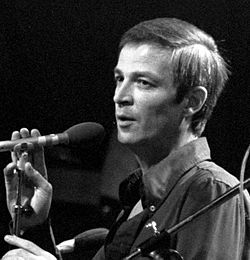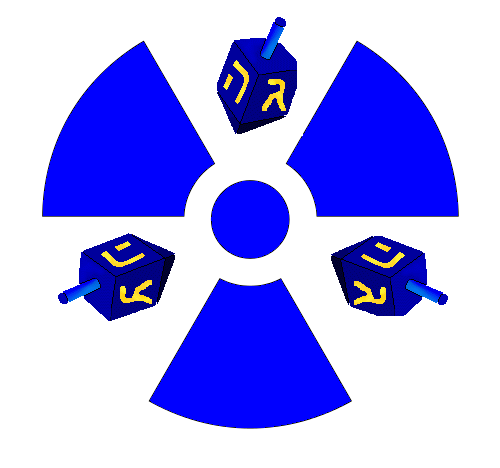
“You and I can change the world”
The refrain from Arik Einstein’s iconic song, “Ani ve-Atah” (literally, “You and I” — no, Lady Gaga, you didn’t have the song first) seems to ring especially true as we enter Hanukkah and Thanksgiving and as news breaks of the United States and Iran agreeing to enter formal negotiations. The talks that result will, hopefully, lead to the curbing of Iran’s nuclear program and prevent the production of a nuclear bomb. At this point, however, we are unsure of exactly what the actual deal will entail.
Understandably, the announcement has drawn significant responses from both ends of the political spectrum in the United States and abroad, including Israeli Prime Minister Benjamin Netanyahu’s outright condemnation of the deal. It has also brought its fair share of praises and criticisms from members of the pro-Israel community in America from all sides of the political spectrum, including organizations like J Street, which has endorsed the deal, and AIPAC, which has condemned any deal that will not result in a complete cessation of Iranian uranium production.
What strikes me as interesting in the arguments against the announced deal is that we don’t actually know what the deal will bring. That is because, deep down, everyone is at least somewhat skeptical about Iran, given their track record of lying about their nuclear program. And Netanyahu’s (and many Israeli government officials’, including Israeli minister of trade and commerce, Naftali Bennett) skepticism is especially understandable, given that Iranian leaders have continually denounced the Israeli leadership and Israel’s right to exist.
On the flip side, however, we see that progress is being made in regards to Western relations with Iran. This is the first step of the deal, and the the only thing that has really been agreed on at the moment is that talks will continue. That might leave Iran, yes, with some enriched uranium. What AIPAC and Netanyahu don’t understand is the magnitude of this breakthrough with Iran: Even if diplomacy ultimately fails, the fact that western and Iranian leaders are even willing to talk about curbing Iran’s nuclear program through diplomacy, and not through sanctions or military strikes, is a tremendous achievement in and of itself.
It is also important to note that this is only the first of (what we hope) will be many talks that will take place between the United States and Iran, and it is upon the Iranians to keep up their side of the deal. They, more than any other side, stand to lose out by violating the terms of the agreement reached. The Iranians can only benefit from an increase in diplomacy, as can the West, and it is on them to make sure that they do, in fact, reduce the production of enriched uranium.
The coincidence of Hanukkah and Thanksgiving last week was a celebration of more than just cranberry-filled jelly doughnuts or turkey-menorahs: it was a celebration of American Jewry’s ability to merge, possibly even seamlessly, two aspects of our identities as both American and Jewish. As pro-Israel Jews, moreover, we are forced to take another aspect in our identities into account this Thanksgivukkah: our want, and need to support the State of Israel. Our personal opinions aside, Israel’s leadership has made its opinion clear as well, and the positive messages we receive from the Obama administration here in the United States seem to be directly countermanded by Netanyahu’s statements. And, as pro-Israel Jews, we are placed in the tension that has resulted from Netanyahu’s and Obama’s disagreements.
This Thanksgivukkah, we are simultaneously reminded of two conflicting messages: first, that there is still power to diplomacy and peaceful talks between two powers that have had a history of animosity toward each other ever since the American Embassy in Teheran was stormed in 1979, and second,of the fact that one of those powers directly threatens the security of a nation that we, as members of the pro-Israel community, are charged with protecting and supporting.
“The test of a first-rate intelligence is the ability to hold two opposed ideas in mind at the same time and still retain the ability to function,” F. Scott Fitzgerald once wrote. This Thanksgivukkah, we are charged with seriously reconsidering what it means to be pro-Israel. That means, for me, being able to simultaneously applaud the United States’ and Iran’s diplomatic efforts, while also being wary of the threat that Iran poses to Israel’s security. I can remain hopeful in the United States’ abilities to work with Iran, and not against Iran, to create a safer world, but also be worried that Israel might be placed in the middle of those diplomatic efforts. And, then, I can worry that the current government in Israel will only strain the diplomatic efforts, not help them.
As an American, pro-Israel Jew, I can place the hope in what Arik Einstein articulated in his song: that two people can, and will, change the world. But that also means that I am charged with remained committed to supporting the State of Israel, and hoping that Israel will do its best to both look out for its own people and country, but also not interfere with the diplomatic process that I will, unabashedly, continue to have faith in.
Amram Altzman is a student at List College.

